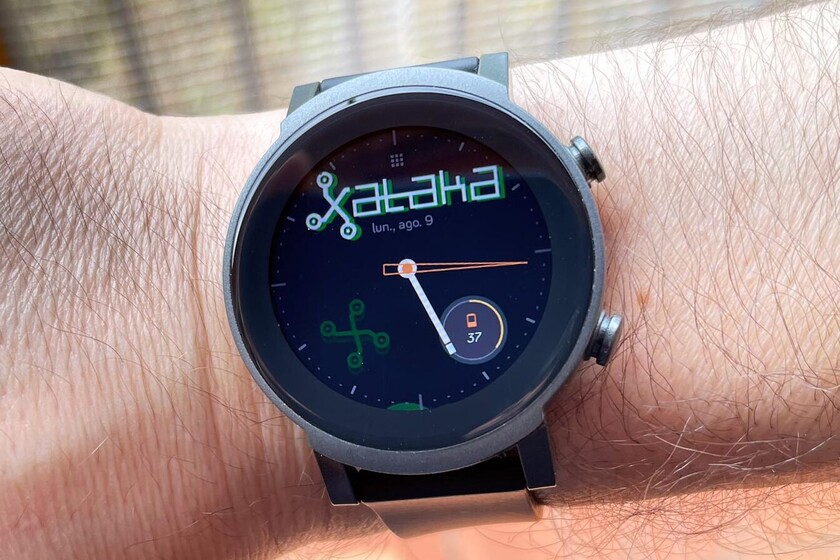



Do you want your smartwatch with Wear OS show itself just how you want it to? If you are not convinced by the watch faces that it comes with as standard, you can always create your own Watchfaces: we have chosen the best Android applications to achieve this.
Smartwatches with Wear OS come with their own watchfaces, known as watch faces. All brands include their own dials, but it is always possible install new ones from Google Play. Not only that, there are apps that allow the creation of watchfaces from the phone, also from the web. Below we collect the best ones for the task.
It is an essential app if you want to make your smartwatch your own smartwatch. Facer is a very complete application, with countless volume of community creations and, as we seek, it also allows us to create spheres from scratch.
Facer is not exactly simple (all creators of watchfaces have some difficulty), but it takes a while to fiddle with their “Facer creator” software to understand how it works. Of course, the creation of new spheres with Facer is not done on the phone, but on the web.
{“videoId”: “x7zpyou”, “autoplay”: true, “title”: “COMPARISON of SMARTWATCH What is THE BEST SMARTWATCH?”}
You must access Facer Creator, choose a type of sphere and add elements as you wish. Once completed, and as long as you use a Facer account, the watchface will sync with your Wear OS watch.
Facer Creator on the web
Facer is a free app, it has ads and you can subscribe to its service premium to remove them and add extra options. You don’t need to pay to create your own watchfaces.
Another traditional Android application that has two basic functions: watchface library with thousands of them to download (created by users) and option to design the watch faces from scratch. Unlike Facer, Watchmaker does allow creation from the mobile app.
Facer offers the creation of watch faces with a multitude of different designs; in addition to including the customization of background, needles or complications, for instance. It includes an app for the clock that is the one that synchronizes the watchfaces and is free; although you need to be premium for much of the creation of spheres.
What started out as a couple of customizable watch faces has become an ode to customizing watchfaces on Wear OS: with Pujie Black you can create whatever you want. And from the mobile, it is our favorite.
The app allows you to choose the type of watch, dial, you can add different complications, adjust the funds, choose what happens with the interactions, vary the appearance of the elements or their tonality… all in a clean way and, despite the fact that it involves some complexity (a lot), Pujie is the clearest and most concise when it comes to creating watchfaces.
Pujie Black is an app that costs 1.99 euros. If you want to create your own watchfaces for Wear OS, it is one of the most recommended apps. And without ads.
Like Pujie Black, also Minimal & Elegant (M&E) has evolved from unique watchface to creator of spheres. What was originally a digital model with numbers that moved horizontally now allows create any watchface you can think of. Of course, your system is somewhat complex.
Minimal & Elegant offers a generic base watchface from which any other can be generated. Although the best is look for one that you like in its extensive database and then customize it to your liking. It can also be created, but the process is arduous.
The app is perfect to give your smartwatch another style, the one that you have chosen just for yourself. Minimal & Elegant costs 1.99 euros. It has no ads, no in-app purchases. And it has an impressive watchface gallery.
–
The news
The best apps to create watch faces or watchfaces for your Wear OS
was originally published in
Engadget Android
by
Ivan Linares
.
Exploring the Top 5 Voice AI Alternatives: What Sets Them Apart?
How iGaming Platforms Ensure Seamless Integration of Casino Games and Sports Betting?
The Rise of Spatial Computing: Evolution of Human-Computer Interaction
Data Loss on Windows? Here's How Windows Recovery Software Can Help
Integrating Widgets Seamlessly: Tips for Smooth Implementation and Functionality